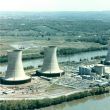Time to jettison reflexive suspicion
By P. R. Kumaraswamy, April 19, 2012
A consensus has emerged in this Roundtable that proliferation concerns should not be used to deny developing countries access to nuclear energy. While nuclear proliferation is a worry that cannot be dismissed lightly, one also cannot ignore the excessive concerns about nuclear power that the nonproliferation community harbors (especially civil society organizations, which stand in the forefront of the crusade against nuclear energy).
The perennial energy crises facing many low- and middle-income countries do not make good news copy. Most of the time, energy shortages do not make the news at all. Meanwhile, the nuclear accidents at Chernobyl and the Fukushima Daiichi Nuclear Power Station seem to convey a powerful, deadly message: never again. As horrible as these accidents have been, it is essential to keep things in perspective: The 1984 industrial accident in Bhopal, India, resulted in many more immediate deaths than did Chernobyl (though the long-term losses from both incidents are still being counted).
But despite the lack of attention paid to developing countries' energy shortages, it is precisely because of perennial or growing dependence on hydrocarbon imports that many countries utilize or contemplate adopting nuclear power. In India, China, and even Japan, nuclear energy cannot be delinked from hydrocarbon dependence. Such dependence is always problematic because of price volatility and political instability in the oil-rich Persian Gulf — but the West's new oil sanctions against Iran have made commercial petroleum transactions even more difficult and expensive. Though the sanctions against Iran are driven by proliferation concerns, these same sanctions increase the appeal of nuclear energy. Import-dependent countries such as China and India can be expected increasingly to look to nuclear energy as an option, both to enhance their energy security and to minimize Western interference over the medium to long term. These countries also might be tempted to use their growing financial clout to challenge the West's nuclear energy policies.
And despite all the concern about proliferation, how many countries have actually pursued weaponization over the years? More than six decades after the bombings of Hiroshima and Nagasaki, only nine countries possess nuclear weapons. While the global nonproliferation regime can take some credit for this, it is important to keep in mind that weaponization is a both a costly and risk-laden affair. In fact, the technological and financial challenges involved in developing nuclear weapons may be exceeded by the security costs of doing so. In Iran's case, for example, weaponization might undermine the country's security interests by encouraging Arab nations or even Turkey to seek a nuclear umbrella or nuclear weapons. Countries do not follow such a course without undertaking a serious risk assessment, and the decision to proliferate is based on careful calculation. Excessive focus on a very few nations' decision to proliferate only introduces confusion into the global debate about energy needs.
To become more effective, the global nonproliferation community needs to engage more seriously with the energy crises facing many low- and middle-income countries. Such engagement would necessarily entail recognition of the forces that cause developing countries to consider nuclear energy, and would offer three distinct advantages.
First, if the nonproliferation community abandoned its tendency to regard with suspicion every nation that seeks nuclear power, it could more effectively identify true proliferators and act decisively to constrain them. Second, developed countries could contribute more to the developing world's economic advancement if they regarded nuclear power as a platform for growth.
Third, the developed world might encourage meaningful debate about nuclear power within developing countries if it stopped placing impediments in the way of the developing world's use of nuclear energy. Nuclear energy, after all, is not a panacea for socioeconomic problems in low- and middle-income countries — indeed, it may not even be a remedy for energy shortages. As Gilberto M. Jannuzzi and Shahriman Lockman have indicated in this Roundtable, nuclear power is not only expensive but in many cases may be environmentally and technologically counterproductive for developing countries. These realities are obscured as long as the rich world fails to treat nuclear power as just another energy option. If this failure were rectified, developing countries might more realistically grapple with issues such as nuclear energy's economic viability and safety profile — and ultimately opt to address their energy needs through less complicated means.
Nonproliferation advocates should both recognize the energy challenges of developing countries and delink these challenges from proliferation concerns. Otherwise, nonproliferation becomes a force that inhibits rational decision-making in the developed and developing worlds alike.
Topics: Nuclear Energy, Nuclear Weapons
Share: [addthis tool="addthis_inline_share_toolbox"]














